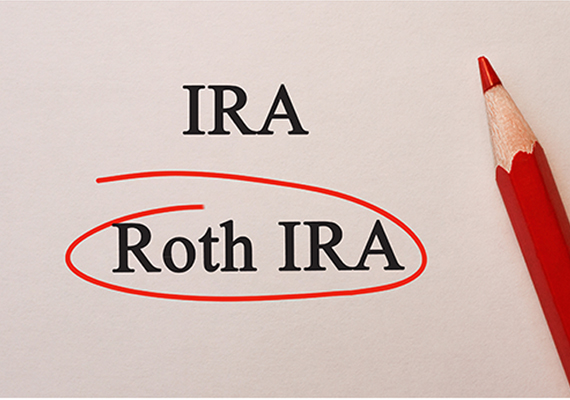
Should You Convert Your Traditional IRA Into a Roth?
In 1974, Congress passed the Employee Retirement Income Security Act (ERISA). One of its key components was the Individual Retirement Account, or IRA. The IRA was designed to protect workers by allowing them to own their retirement accounts independent of any employer. As an incentive to save, they could deduct their IRA contributions from their taxes up to an annual limit (in 1974, that limit was $1,500). Any taxes would be paid upon withdrawal.
Since its establishment, the IRA has seen many changes, including the introduction of new types of accounts. In 1997, Senator William Roth spearheaded the implementation of what came to be known as the Roth IRA. With this version, workers forego the tax break when they contribute in exchange for tax-free growth potential and tax-free withdrawals in retirement. Having a Roth IRA makes sense when you believe that your marginal tax rate at the time of withdrawal will be higher than when you are making contributions.
The decision about which kind of IRA to open is based on your estimated tax bracket at some future date. As your circumstances change, you have the option to convert your original IRA to a Roth IRA. Of course, you will be subject to any taxes owed on the conversion and once you change a traditional to a Roth, there's no going back.2
It could be a good time to consider converting your traditional IRA to a Roth IRA if you: 3
· are in a lower income tax bracket than you will be later or have been in the past because your income is lower than usual;
· are close to retiring and have already cut back on your working hours;
· have recently retired but have not yet claimed your Social Security retirement benefits
Before making any changes, talk to your tax professional and reach out to our trusted advisors to help you consider the following: Do you have funds outside the IRA to pay the expected current tax liability? Are you planning on making philanthropic gifts or leaving a legacy? And how might the conversion affect the cost of your Medicare premium?
1. http://go.pardot.com/e/91522/ira-deduction--sh-6e77ce6d7e7d/8t14v6/1757278445?h=nwz9RUi7LzW16OCuQfOXywc-OlPZ4SjigXLGCy22X8Q
2. http://go.pardot.com/e/91522/terms-i-ira-asp/8t14v9/1757278445?h=nwz9RUi7LzW16OCuQfOXywc-OlPZ4SjigXLGCy22X8Q
3. http://go.pardot.com/e/91522/-ira-to-a-roth-ira-11633477254/8t14vd/1757278445?h=nwz9RUi7LzW16OCuQfOXywc-OlPZ4SjigXLGCy22X8Q

Related articles

If you're a little confused about the difference between a 401(k) and an IRA, you're not alone. Most people know that they're both designed to help you save for retirement and, at work, they...

You’ve likely seen the headlines about the “One Big Beautiful Bill” (OBBB) signed into law on July 4, 2025. It’s a sweeping piece of legislation that expands many of the 2017 tax cuts. It also...

As a savvy investor you know that one of the keys to long-term success is avoiding unnecessary costs. You know to steer clear of tax penalties, excessive transaction costs, and even opportunity...